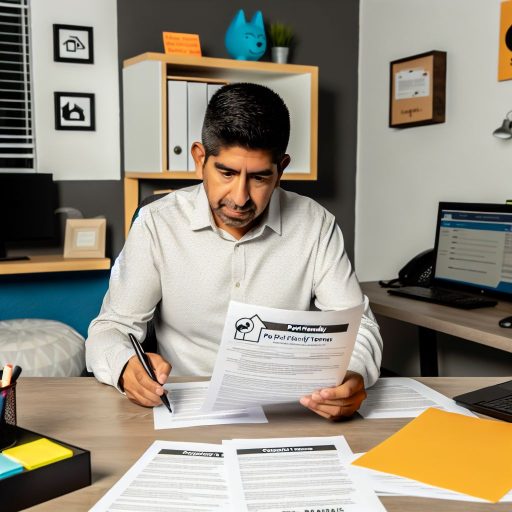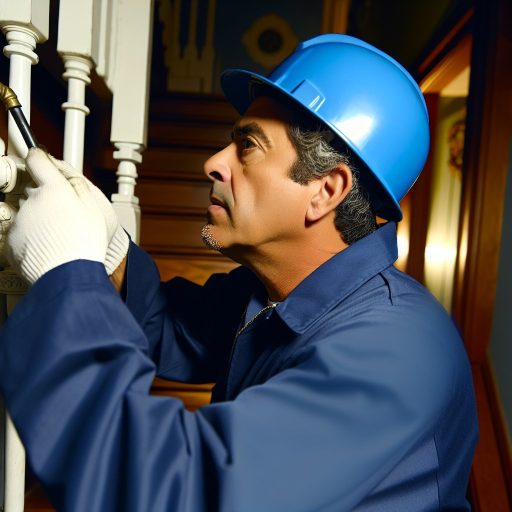Understanding Tenant Rights
Overview of Legal Protections
Tenant rights vary by location, but legal protections exist universally.
These laws ensure tenants can live in safe and habitable conditions.
Landlords must maintain the property and respond to complaints promptly.
Additionally, tenants have the right to privacy in their rental spaces.
They should be notified before any inspections or maintenance work.
Common Tenant Rights
Tenants have several basic rights that are typically recognized.
- The right to a habitable living space.
- The right to privacy and quiet enjoyment.
- The right to fair housing without discrimination.
- The right to organize or join tenant unions.
- The right to a fair return of security deposits.
Reporting Violations
Tenants can report violations of their rights to local authorities.
Keeping detailed records is essential for effective complaints.
Documentation helps in resolving disputes more efficiently.
Consulting legal aid services can provide additional support.
Ultimately, understanding these rights empowers tenants.
Legal Recourse for Tenants
When landlords violate their legal obligations, tenants can seek recourse.
They can file complaints with housing authorities or seek mediation.
In some cases, pursuing court action may be necessary.
Small claims courts often handle disputes over damages or unpaid rents.
Transform Your Real Estate Decisions
Unlock personalized real estate insights crafted just for you. Get actionable advice designed to amplify your success.
Get StartedConsulting a lawyer can clarify the appropriate actions to take.
The Role of Landlords: Responsibilities and Legal Obligations
Understanding Tenant Rights
Landlords must be aware of tenant rights in their jurisdiction.
These rights often include the right to a habitable living space.
Additionally, tenants have a right to privacy and peaceful enjoyment.
Understanding these rights helps prevent disputes.
Maintaining the Property
Landlords are responsible for maintaining the property in a safe condition.
This includes fixing plumbing, electrical issues, and structural damages.
Timely repairs prevent small problems from worsening.
Furthermore, regular maintenance can enhance tenant satisfaction.
Responding to Tenant Complaints
A prompt response to tenant complaints is essential.
Landlords should acknowledge complaints within a reasonable timeframe.
Additionally, they should document all complaints for future reference.
Effective communication helps to resolve issues before they escalate.
Legal Compliance
Landlords must comply with all local housing laws and regulations.
Showcase Your Real Estate Business
Publish your company profile on our blog for just $200. Gain instant exposure and connect with a dedicated audience of real estate professionals and enthusiasts.
Publish Your ProfileThis includes understanding fair housing laws and tenant protections.
Failure to comply can result in legal actions against landlords.
Staying informed helps prevent costly legal disputes.
Handling Evictions Properly
When evicting a tenant, landlords must follow legal procedures carefully.
This process often requires proper notice and legitimate reasons for eviction.
Ignoring legal protocols can lead to wrongful eviction claims.
Consulting with a legal professional can ensure compliance.
Engaging in Mediation or Dispute Resolution
Sometimes, disputes require mediation to find a solution.
Mediation can be less confrontational than court proceedings.
Landlords should consider mediation to resolve tenant conflicts amicably.
Additionally, some states require landlords to attempt mediation first.
Common Tenant Complaints
Types of Complaints
Tenant complaints often fall into several categories.
Maintenance issues are among the most frequent complaints.
Tenants frequently report problems like plumbing leaks or faulty heating.
Noise disturbances also rank high on the list of complaints.
Issues with neighbors can cause significant distress for tenants.
Another common complaint involves lease agreement misunderstandings.
Tenants may feel that terms are unclear or inconsistently enforced.
Additionally, safety concerns, such as inadequate lighting, are common.
Lastly, disputes related to security deposits occur often.
Frequency of Complaints
The frequency of tenant complaints varies by property type.
For instance, multi-family buildings may see more issues than single-family homes.
Urban areas often report higher complaint rates due to noise and congestion.
Statistically, maintenance-related complaints make up a significant portion.
Surveys show that over 40% of tenants report such issues.
Lease misunderstandings can also arise frequently, affecting tenant-landlord relationships.
Understanding these patterns helps landlords address issues proactively.
Regular communication can also reduce complaint frequency significantly.
You Might Also Like: Navigating Rent Control Laws and Tenant Eviction Policies
Effective Communication: Strategies for Addressing Complaints
Importance of Open Dialogue
Open dialogue fosters trust between landlords and tenants.
Showcase Your Real Estate Business
Publish your company profile on our blog for just $200. Gain instant exposure and connect with a dedicated audience of real estate professionals and enthusiasts.
Publish Your ProfileBy encouraging open communication, landlords can resolve issues promptly.
This approach helps prevent misunderstandings.
Additionally, it creates a positive renting experience.
Listening Actively
Active listening is essential for landlords dealing with tenant complaints.
Make sure to hear what the tenant is saying without interruption.
Reflect back what you’ve heard to ensure understanding.
This technique shows respect and empathy towards the tenant.
Clarifying Issues
Clarifying the complaint helps in addressing the issue effectively.
Ask specific questions about the problem to gather more details.
This will help in understanding the tenant’s perspective fully.
Summarize the issue to confirm your understanding with the tenant.
Documenting Complaints
All tenant complaints should be documented thoroughly.
Ensure to note down dates, times, and specifics of the conversation.
This record can be valuable for future reference or disputes.
Documentation also demonstrates professionalism and accountability.
Responding Promptly
Responding swiftly to tenant complaints is crucial.
Delays may escalate the issue and cause frustration.
Set a timeline for addressing complaints to manage expectations.
This shows tenants that their concerns are a priority.
Offering Solutions
Whenever possible, offer practical solutions to complaints.
Engaging tenants in the solution fosters collaboration.
Consider potential compromises when addressing issues.
A well-thought-out resolution can enhance tenant satisfaction.
Follow-Up Communication
Following up after resolving the issue is equally important.
Check in with the tenant to ensure satisfaction with the solution.
This reinforces the landlord’s commitment to their well-being.
It also opens the door for further feedback or issues.
Explore Further: Security Deposit Laws and Refund Guidelines for Landlords
Documentation: The Importance of Keeping Records
Creating a Comprehensive Record-Keeping System
Establishing a robust record-keeping system is vital for landlords.
It helps manage tenant complaints and disputes effectively.
Showcase Your Real Estate Business
Publish your company profile on our blog for just $200. Gain instant exposure and connect with a dedicated audience of real estate professionals and enthusiasts.
Publish Your ProfileOrganize documents related to leases, repairs, and incidents.
A thorough system allows for easy retrieval of information.
Types of Documentation to Maintain
Various forms of documentation play significant roles.
- Lease agreements outline clear terms and conditions.
- Communication records capture interactions with tenants.
- Maintenance and repair logs track service requests and actions.
- Inspection reports document property conditions over time.
Benefits of Proper Documentation
Maintaining proper documentation offers numerous advantages.
It supports legal proceedings in case of disputes.
Records demonstrate compliance with housing regulations.
Accurate documentation can foster better landlord-tenant relationships.
Tips for Effective Record Keeping
Implementing effective record keeping requires attention to detail.
- Use physical or digital formats to organize files.
- Regularly update records to maintain accuracy.
- Ensure all communication is documented and dated.
- Backup digital records to prevent loss.
Find Out More: How To Monitor Rent Payments And Maintain Accurate Financial Records Easily
Mediation and Arbitration: Alternative Dispute Resolution Options
Introduction to Alternative Dispute Resolution
Many landlords and tenants face disputes during their leasing terms.
They often prefer to resolve these issues outside the courtroom.
Alternative dispute resolution (ADR) methods like mediation and arbitration can be effective.
Mediation Defined
Mediation involves a neutral third party helping both parties communicate.
The mediator facilitates discussions but does not make a decision.
This process aims for a mutually agreed resolution.
Benefits of Mediation
Mediation offers several advantages for resolving disputes.
- It is typically quicker than traditional litigation.
- Costs associated with mediation are often lower.
- The process allows for flexibility in outcomes.
- It helps maintain a relationship between landlord and tenant.
Arbitration Explained
Arbitration is another form of ADR.
In this process, an arbitrator hears both sides and makes a binding decision.
This is similar to a courtroom trial but usually less formal.
Pros and Cons of Arbitration
Arbitration has its own set of advantages and disadvantages.
- It provides a quicker resolution than court trials.
- Costs can be reduced compared to litigation.
- However, the decision made by the arbitrator is final.
- This means there are limited options for appeal.
Choosing Between Mediation and Arbitration
The choice between mediation and arbitration depends on several factors.
Consider the nature of the dispute before making a decision.
If you seek control over the outcome, mediation might be preferable.
However, if a binding decision is needed, arbitration is more suitable.
Legal Framework for ADR
Many jurisdictions have established laws governing ADR processes.
In some cases, leases may require mediation or arbitration before litigation.
Familiarize yourself with these legal requirements in your area.
Find Out More: Lease Agreements for Subletting Tenants

The Legal Process: Steps to Take When Complaints Escalate
Initial Communication with Tenants
Start by addressing the tenant’s issue directly.
Use clear and respectful language to convey your message.
Showcase Your Real Estate Business
Publish your company profile on our blog for just $200. Gain instant exposure and connect with a dedicated audience of real estate professionals and enthusiasts.
Publish Your ProfileDocument all communications for future reference.
Encourage tenants to express their concerns openly.
Gathering Relevant Information
Compile all necessary details about the complaint.
Review the lease agreement to understand obligations.
Check for any previous complaints or patterns.
Gather any supporting evidence, such as photographs or documents.
Conduct Further Investigation
Visit the property to assess the situation first-hand.
Speak to other tenants for their perspectives.
Evaluate if the complaint aligns with lease terms.
Consult with experts if necessary, such as maintenance personnel.
Formal Resolution Steps
If the issue remains unresolved, escalate the matter.
Prepare a formal communication outlining the findings.
Present proposed solutions in writing.
Set a timeline for resolution to manage expectations.
Documentation and Record-Keeping
Keep detailed records of all actions taken.
Document communications, investigations, and outcomes.
Ensure all records are accessible for potential legal needs.
Review documentation regularly to ensure accuracy.
Understanding Tenant Rights
Familiarize yourself with local tenant laws and rights.
Provide tenants with resources related to their rights.
Ensure compliance with all regulations during the process.
Remain transparent about the progress of their complaints.
Legal Intervention and Mediation
In cases of serious disputes, consider mediation.
Engage a neutral third party to facilitate discussions.
Explore options for legal resolution if mediation fails.
Consult legal counsel to understand your position.
Following Up After Resolution
Create a follow-up plan after resolving the complaint.
Ensure the tenant is satisfied with the outcome.
Solicit feedback to improve future handling of issues.
Strive for ongoing communication and relationship building.
Showcase Your Real Estate Business
Publish your company profile on our blog for just $200. Gain instant exposure and connect with a dedicated audience of real estate professionals and enthusiasts.
Publish Your ProfilePrevention: Best Practices for Avoiding Tenant Disputes
Clear Communication
Effective communication forms the foundation of a successful landlord-tenant relationship.
First, ensure all policies are transparent and easily accessible.
Next, establish open lines of communication for both parties.
Regular updates help tenants feel informed and valued.
Detailed Lease Agreements
A well-drafted lease agreement minimizes misunderstandings.
Start by including all essential terms, like rent, duration, and maintenance duties.
Subsequently, specify any rules regarding pets, guests, and noise levels.
Furthermore, ensure both parties thoroughly review the document before signing.
Regular Property Maintenance
Maintaining the property in good condition prevents numerous disputes.
Conduct regular inspections to identify maintenance needs early.
Promptly address maintenance requests from tenants to build trust.
Additionally, consider seasonal maintenance tasks to prepare the property adequately.
Conflict Resolution Mechanisms
Establishing a clear process for handling complaints is essential.
Encourage tenants to report issues quickly, without fear of retaliation.
Provide multiple methods for submitting feedback, such as email or a dedicated online portal.
Moreover, ensure your response times are reasonable to show commitment.
Education on Rights and Responsibilities
Educating tenants about their rights can prevent misunderstandings.
Provide brochures or online resources detailing tenant rights and responsibilities.
Consider hosting informational sessions to discuss common issues and solutions.
Moreover, encourage tenants to communicate any concerns right away.
Local Laws and Regulations
Navigating Specific State or City Rules
Every state has its own landlord-tenant laws.
As such, property managers must familiarize themselves with these local regulations.
In addition, cities often implement their own specific rules.
Understanding these laws is crucial for resolving tenant disputes effectively.
Fines and penalties may apply for non-compliance.
Identifying Local Tenant Rights
Tenants possess specific rights under local laws.
These rights may include protections against eviction without cause.
Additionally, tenants often have the right to a safe and habitable environment.
Knowing these rights helps landlords address complaints properly.
Understanding Complaint Procedures
Landlords should establish clear procedures for handling tenant complaints.
Showcase Your Real Estate Business
Publish your company profile on our blog for just $200. Gain instant exposure and connect with a dedicated audience of real estate professionals and enthusiasts.
Publish Your ProfileThese procedures must align with local regulations.
They should include timelines for responding to complaints.
Furthermore, landlords should document all interactions with tenants.
Dispute Resolution Options
Local laws often outline dispute resolution processes.
Mediation is a common option for resolving conflicts.
Additionally, small claims court may be an avenue for tenants.
Landlords should know these options before disputes arise.
Enforcing Lease Agreements
Lease agreements must comply with local laws.
Specific terms in leases may affect tenant rights and landlord obligations.
Landlords should ensure all lease terms are enforceable.
Unenforceable terms can lead to disputes and tenant complaints.
Regularly reviewing lease agreements protects both parties.
Additional Resources
Landlord-Tenant Complaints | Rockville, MD – Official Website




